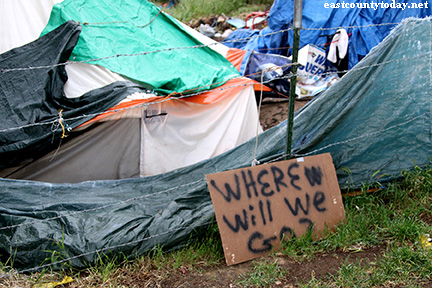Legislation would authorize funding for comprehensive services including mental health, substance abuse
Washington—Senator Dianne Feinstein (D-Calif.) has introduced the Fighting Homelessness Through Services and Housing Act, a bill to authorize $1 billion annually to help local governments combat homelessness.
The bill recognizes that addressing homelessness requires additional affordable housing as well as mental health care, substance abuse treatment and job training. Cities and counties applying for grants under this bill would be responsible for the housing as well as these supportive services.
 Grant recipients would be required to provide 25 percent of project funds and report on measures of success, including whether individuals remain housed.
Grant recipients would be required to provide 25 percent of project funds and report on measures of success, including whether individuals remain housed.
“Homelessness remains one of the most intractable problems in our nation. Nearly 600,000 individuals are without a permanent roof over their heads, and more than 170,000 of those are in California. This problem has reached a crisis level and we must do more to combat it,” said Senator Feinstein.
“One reason homelessness is so difficult to address is that it’s not just a housing issue or a poverty issue, and frequently requires addressing mental health, substance abuse, education, job training, life skills and more. We must address those root causes for homelessness, which means comprehensive supportive services. This bill does that by requiring that housing be paired with these critical services so we can finally break the cycle of homelessness.”
The bill is cosponsored by Senators Alex Padilla (D-Calif.), Amy Klobuchar (D-Minn.) and Jeanne Shaheen (D-N.H.).
What the bill does
- Authorizes $1 billion annually for five years to fund supportive housing models that provide comprehensive services and intensive case management.
- Requires a 25 percent match for services and housing from non-federal funds.
- Allows grants to be used for any combination of operations and capital building costs as long as housing and services requirements are fulfilled.
- Requires grantees to track outcomes and report on housing stability and improvements in health and wellbeing, including the education of children.
Grant eligibility and requirements
- Grants may go to local governmental entities consisting of cities, counties, regional collaboratives and tribal governments.
- Services must address issues including mental health; substance use disorders; disabling or other chronic health conditions; educational and job training/employment outcomes; and life skills classes.
- Intensive case management must be provided with a ratio of no greater than one case manager for every 20 people served.
- When serving families with children, services available must also include children’s behavioral and mental health services, early childhood education, regular and age-appropriate children’s programming and activities, child health and nutrition screening and education and parenting classes and support programs.
- Services must also have in place protocol for staff training and best practices to identify and prevent child trafficking, abuse, and neglect.
Editors Note:
On January 25, Contra Costa County will host its annual Point-in-Time count, documenting unsheltered residents who need housing. Data from the PIT Count helps government, service providers and community advocates develop effective responses to the needs of local people who are experiencing homelessness. The information is also a required part of the county’s requests for federal and state funding for homeless services. — full story
During the 2020 count, the last year for which we have reliable data, approximately 2,277 people were experiencing homelessness in Contra Costa County.

